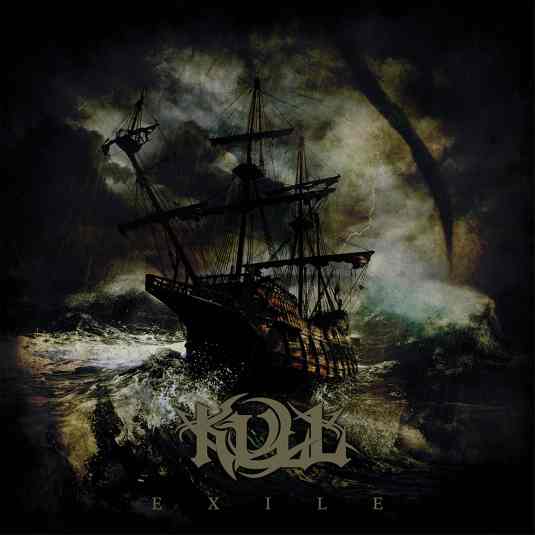Does The Vow Of The Exiled Fall On Deaf Ears? A Kull Review

It’s not Bal-Sagoth’s Apocryphal Rites, the 2013 re-release of their 1993 demo with some added bonus tracks, such as “Hyperborean Requiem”, an experimental piece dating all the way back to 2004, but that doesn’t mean it can’t be awesome, right?
For each given year, many an album will find themselves subjected to anticipation. Few, however, will ever be faced with such a gargantuan amount of it, as Kull’s debut Exile has been from my part. It is not, for me, simply the most anticipated album of the year – it is the most anticipated album of the decade. I doubt I’ve ever spent as much time and energy waiting for something. I’ve waited for this to happen for so long, I’ve practically stopped waiting for it, or believing in it. But now it’s here – supposedly, I still find it hard to believe it’s actually happening.
For those poser scrubs of you who don’t yet know, Kull is Bal-Sagoth. Kull is approximately 4/5ths of Bal-Sagoth to be more precise. To be even more precise, Kull is the Maudling brothers, Chris and Johnny – the core duo responsible for composing Bal-Sagoth’s music with drummer Paul “Wak” Jackson who had joined in 2007, and bassist Alistair MacLatchy, whose history with the band dates all the way back into 1993, and newcomer vocalist Tarkan Alp from the ranks of Dyscaphia.
Much, or all, of Exile’s music was envisioned to be Bal-Sagoth’s 7th full-length, so even if I wanted to try and separate these bands to entities of their own – which I don’t – the confluence, converging nodes would be unavoidably clear.
What I was foremost worried of was how Tarkan would fare, and true enough his spoken word presentation does not match the theatricality of Robert Byron’s dramatic reading, but the band acknowledges this and such sections are used with lesser frequency and Tarkan varies his performance with both distant and rough, hoarse whispers. But overall he gets the greatest mileage from his growls keeping the vocals familiar but playing to his strengths.
Musically, Kull takes a similar path. The symphonic majesty against the heft of their metallic riffs and rhythms and leadwork plentiful enough to ensure that neither the guitar nor the keyboards get the clear upper hand on the album. This is no new direction to the Maudling brothers, and often times seems a counterpart to the The Chthonic Chronicles, but simultaneously taking the band towards a darker path. The riffs seem to come from a place more diverse than before, melding death, thrash and black metal effortlessly, every bit as memorable as the bombast of strings and brass heaving over them. Further new tonalities are explored with occasional electronic elements that often lay near the bottom of the multi-layered beast. Proof of balance not often found in symphonic metal is the bass that is always audible and mostly actually playing something, even taking the lead-riff duty in “Pax Imperialis”.
As each song is jammed with riffs and sections, but never feels crammed, rather championing the brothers’ songwriting prowess, and the meticulous effort that went into delivering a balanced mix. And similarly the album is paced very well, complexity is followed by simplicity, which in turn is followed by violence but never in an overwrought, heavy-handed manner. The only complaint I am to lay is “Set Nakt Heh”, following the instrumental “Imperial Dawn”, its central chug riff/chorus sounds more awkward than compelling and is a poor de facto opener for the record, immediately souring the mood set beforehand. While the rest of the song is as glorious as Exile by and large, and after some several spins the chug-riff becomes familiar enough to stop being bothersome, it remains a weak spot and a fumbling beginning.
Exile could never have answered to the expectations and hype I had built up for myself, but for most of the time, it does an excellent job trying to.
4.5/5 Flaming Toilets ov Hell









